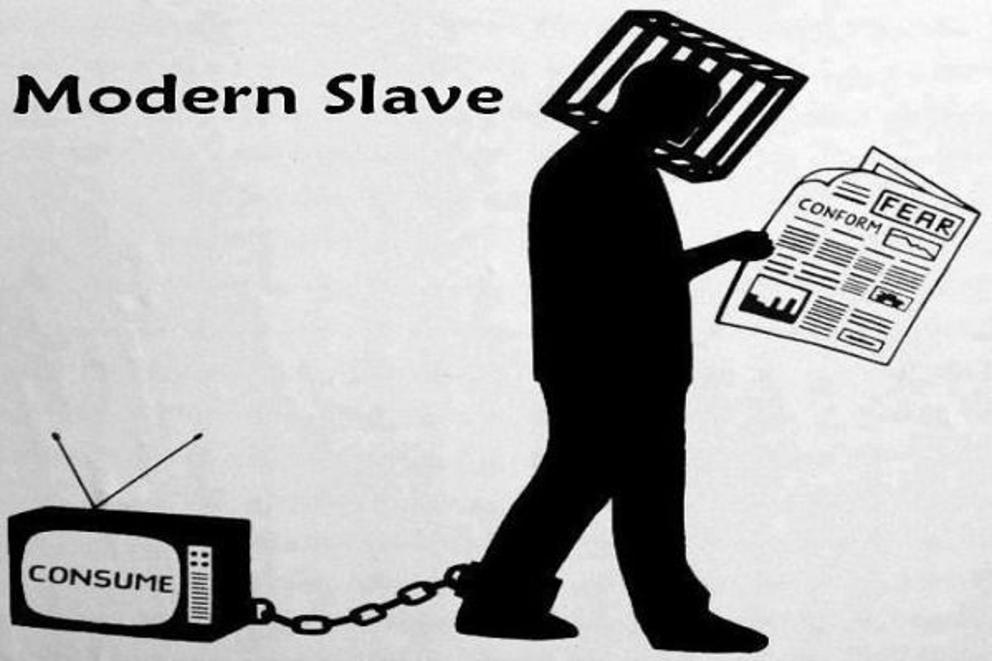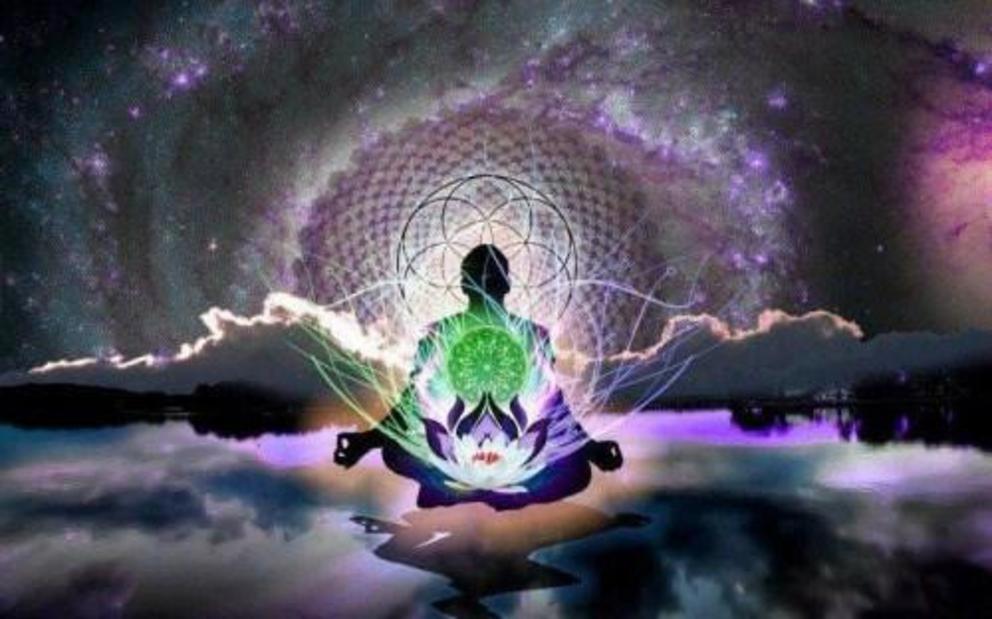The fallacy of misplaced concreteness
Who am I as a subjective entity, and what is this objective reality in which I operate within? Is there a purpose to it all?
People have longed and desired for millennia the answers to these most fundamental of questions about human existence. Not only do people want concrete answers to their existential questions, but simple, neat explanations are sought after to define all the aspects of life. The very fact of not having an answer to a question can leave one with immense anxiety, stress, and emptiness. People fear that which they do not know, especially when it comes to oneself or environment. As a result, people, ideologies, and sciences of external origin always appear, claiming to fill the void and give concreteness to an otherwise confusing and unknown universe. We not only celebrate and accept these external explanations as facts of truth, but the people propagating them are often looked up to as idols and leaders in which the people can put faith.
As they grow in popularity and acceptance, people find strength and security in numbers. Independent thinking is far too complicated and takes far too much time, especially when caught up in the non-stop rat race many of us call reality. Emotions and thoughts can run volatile while venturing down the rabbit hole and out into the wild west of the unknown, exposing one to mysterious realities and inverse truths that often come away shattering paradigms. This is both scary and risky, especially at first, exposing one to heightened levels of vulnerability. Concreteness is a far more comfortable and secure way to navigate this complex world. Knowing is also seen as a sign of strength and confidence in society, while not knowing is perceived as weakness and uneducated. Yet, is this actually a trap, and nothing more than a deceptive spell on human perception?

The Trap:
Knowing has an intrinsic relationship with words such as concreteness, filled, closed, fixed, action, controlled, positive, full, and physical. When the perception of an idea is known, it is essentially an ideology that is set in the mind, in that it is a strong neural pattern of connection in the brain that is fully perceived consciously as right and true. There is no need to question the reality of that idea because it is fully hardened and understood as a fixed truth. Effectively, one shapes a paradigm around that idea, always experiencing the consciousness of that idea through that particular lens or filter. It’s as if one’s mind gets placed in a box with clear parameters and edges to define the “true” shape of the idea. In a sense, the belief appears whole and fully understood.
Once a box is placed around an idea, all new information is filtered through the lens and understanding of that “concrete” truth, rendering one unable to see past their preconceived box of beliefs to contemplate the existence of an alternate reality. They don’t know that the picture might be a flawed illusion. When an idea becomes so wholly concrete, new information about the idea that can’t be easily explained through the current lens, is then either distorted by the mind to fit inside the current box, or completely ignored as if it doesn’t even exist. This is where the defense mechanism of fear and denial manifests, often leading to the programmed responses of blind overconfidence or scared obedience. Ignorance is bliss, right?
This right here is the trap in its fullest form, and one that everyone falls into to some degree or another throughout life. The problem is that many fall all the way in, especially on such fundamental ideas, and never come out to question. Faith is confidently placed in an ideological belief, blinding one to the unknown possibility lying just beyond the perceived concreteness on reality. The mind, both logically and intuitively, is then completely shut off and full, stunting the possibility of any learning, growth and evolution from being added to the mix when it comes to the belief system of that idea. This is the fallacy of misplaced concreteness and is arguably one of the most dangerous spells upon human perception. This concreteness that isn’t really there, is nothing more than a subtle and hidden form of mind control that’s highly misunderstood by the public, leaving most subjectively unaware of its existence.

Mind Control:
When something is under control, it lacks the ability to authentically change or exercise free will. In fact, freedom and control are language opposites. Once one’s mind is stuck in an ideological box, it becomes completely vulnerable and loyal to whatever controls and represents it, essentially a slave to its parameters. This control on the human mind can stem from two areas, one’s own mind, or from the external environment. In a sense, one can mind control themselves or allow an external force to mind control them.
At a certain point, everyone falls prey to the mind control of an external force. In society today, the amount of external ideological boxes runs extremely deep, branching into all of religion, science, philosophy, politics, history, social relationships, brands, entertainment, media, culture, and just information in general. All these different disciplines are the same in that they claim to give concrete answers to various ideas and phenomenon. They not only attempt to explain the outside world, but they also come to help define our own subjective experience, including one’s personality and belief system.
This is extremely concerning, in that one is giving up their sovereign ability to perceive reality to an external force in which they did not create or control. At that point they become nothing but sheep, herded into a box that’s defined by some external entity. It’s a widely growing opinion that people in positions of power have knowingly created ideological boxes to herd the masses into for centuries. Ideologies/mind control are the best way to indirectly control the masses in order for the powerful to keep in power and expand their influence.
When the mainstream boxes don’t work and people begin to escape the illusion, they only create new and more nuanced boxes in which to herd the masses, to keep up with the times. This can be described as controlled opposition, and a big part of the Hegelian dialect; a technique for social control, which involves one group controlling all the views of an idea and playing them off each other for a particular purpose. This can be even more hazardous, in that those that escape often think they are making a free choice. The best example is the same group controlling both the left and right of politics as well as independent movements like the Tea Party and Occupy Wall Street, playing them as pawns against each other to fulfill an agenda, giving people the illusion of opposition and choice, while deterring people away from the real root problems.
For more on this topic refer to the following article, “We All Have The Same Enemy, Yet We’re All Divided.”
Similarly, people can just as easily fall victim to mind control of their own creation. Usually unintentionally, they create a concrete reality in which they won’t let anything new break apart. This often happens when one has a subjective experience that they then take and perceive to be a concrete truth, since they did indeed experience it first-hand. For example, if someone has a bad experience learning math when they are in school, they will often go long periods of time thinking and believing that they don’t like math. This is done with all ideas, from political beliefs and historical facts to scientific understandings and personal beliefs of self.
For more on the fallacy of scientific concreteness refer to the article, “Don’t Be Afraid Of Nothing: The Great Merger of Eastern Philosophical Thought And Western Science.”
Are these subjective experiences really concrete truths, or just illusions of misplaced concreteness? Many people mistake their childhood and even later into their adult years as forms of concreteness, especially when it comes to defining their personalities and “the way things work.” This is worrisome because many people are not even fully conscious in their younger years. If one never questions the concrete reality one perceives, then logically one is under a subtle form of mind control, stubbornly unable to see past their perceived concrete beliefs. They constantly distort the truth to fit their current lens and remain blind in order to maintain the status quo that is their paradigm on reality.
However, what happens when one begins to wake-up and question, re-analyzing all the ideological boxes in which they thought were a fixed part of reality? What happens when one wanders out of the box into the great unknown?

Infinite Awareness and Infinite Possibility:
Not knowing is intrinsically comparable to fluid, void, open, malleable, inaction, free, negative, empty, and non-physical. When someone doesn’t know something, reality is not fixed or set, but instead open and free to take any and all forms. As stated earlier, not having an answer can be a very stressful and uncomfortable way to walk through life, especially when society equates intelligence and confidence with having concrete answers. Many people will also claim, “Well some things are just facts in life, so why be open to things that have been proven wrong?” Again, this is all part of the trap and just a spell aimed to put human perception in a fixed box.
The point and secret seems to be remaining open and operating always in a state of not knowing. In this regard, one is then able to see fully into the box and explore its contents without falling all the way in. The moment one falls into the trap of having concrete beliefs, is the moment one’s mind stagnates. It’s not to say that there are not patterns in the universe that appear frequently, because indeed there seem to be, but it’s the idea of being able to see these patterns and adopt them without becoming a slave to any of them. When one chooses not to hold concrete truths, the possibility of growth and evolution of patterns is infinitely possible throughout one’s life. The intention is to observe and study patterns, yet always still operating in a state of unknown and questioning. This allows dialectal thinking to take place, in which one can view all the angles of an idea, instead of just one or two, to come to a current theory. All the fields of human understanding would have never evolved had people not chose to leave the current box of understanding and think differently and independently, outside of it. In fact, it is often the stubbornness of the mainstream culture and its current understandings which hold us back from further enlightenment.
Although not a perfect analogy, taking in information and determining definition is like throwing spaghetti against the wall. Some stuff sticks for a long time, others stick for only a period of time before falling off, while others simply fall off right away. This is the best theory I can conceive of thus far of how consciousness grows. One will never know of this new information and reach a higher state of awareness until one is open and vulnerable to the idea of change; understanding that nothing in reality is actually concrete. It is only a pattern that is constantly flowing and changing. Once someone undergoes a complete ego death of all concreteness, one can experience a paradigm shift, finally allowing them access to the infinite awareness and enter the state of constant growth.
The old saying goes, “Enlightenment is knowing how much you don’t know.” Don’t ever let your perception fall victim to the fallacy of misplaced concreteness. Take back control of your mind and never let anyone trap it, including the fear and denial of your own manifestation. The goal is not a destination, but instead an undefined path towards truth where there is always room for growth, re-evaluation, and evolution. Strangely enough, it is the intuition, for which cannot be explained in a 5 sense reality or scientific materialism, that guides us through the realm of the unknown and into infinite awareness and infinite possibility. The only question now is: Will you take your journey?

Originally Released October 18, 2015

